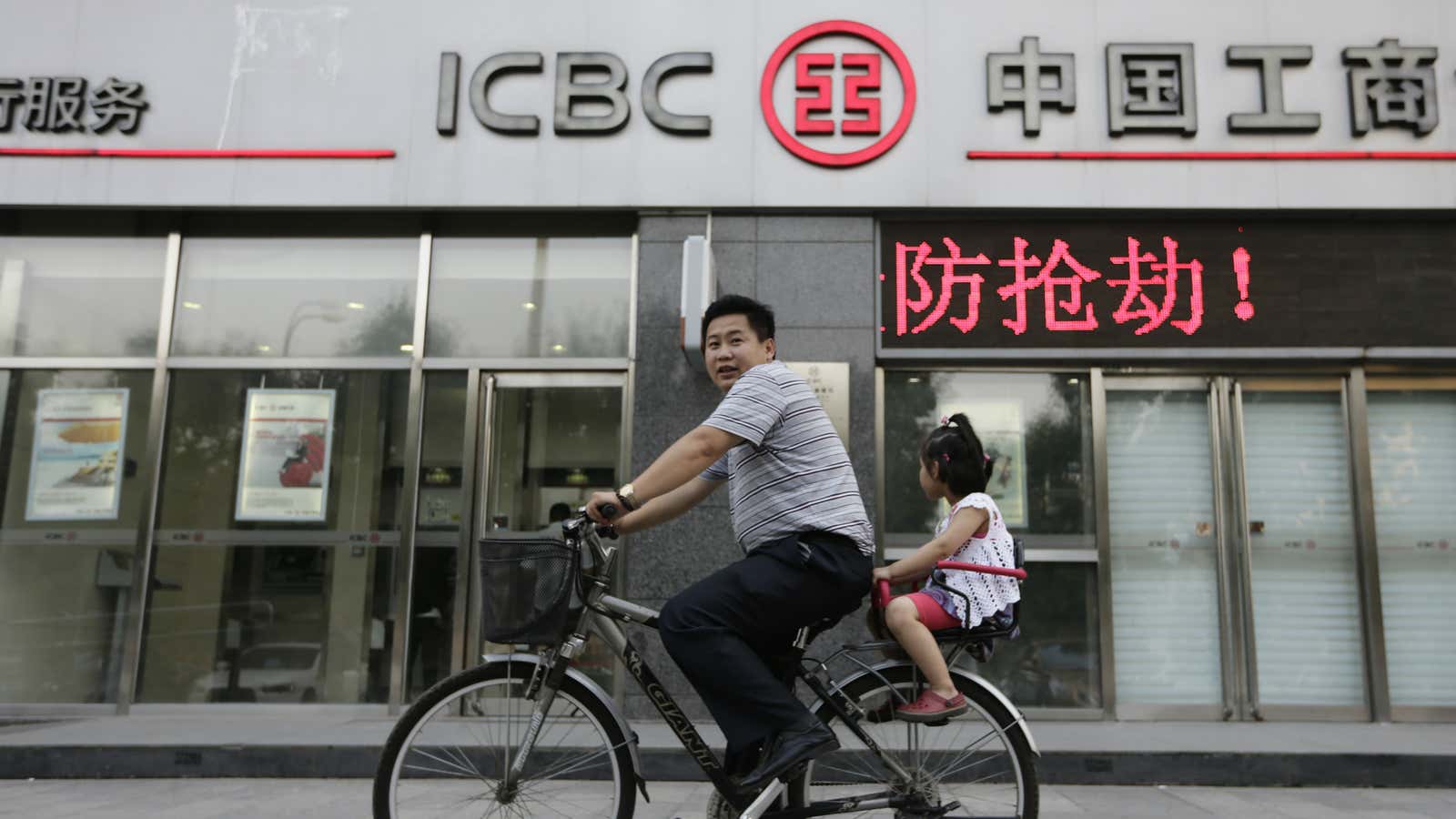For the first time, a Chinese bank has been ranked number one in the world. The Industrial and Commercial Bank of China is now the world’s largest bank by tier one capital—the basic measure of a bank’s financial strength—according to research on the world’s top 1,000 banks compiled by The Banker (paywall).
ICBC’s tier one capital has reached over $160 billion in this year’s survey, up 15% from last year, and it knocked Bank of America from the top spot down to number three. JPMorgan remained second. China occupies four of the top 10 rankings, but overall it is behind both the US and euro zone by tier one capital and only just ahead of the US by total assets. Despite this, its banking sector’s pre-tax profits dwarfed all other regions, at $241.8 billion compared to $144.3 billion for the US.
This year’s rankings give a good indication of the size of China’s banking sector, but not much of its health. A worsening liquidity crisis, somewhat encouraged by the central bank, has spooked investors in recent weeks and cracks have begun to show in the paintwork. Some analysts are concerned about a sub-prime debt time-bomb thought to be hiding inside China’s banking system, and there are still questions about how accurate banks’ measures of their own health really are.
ICBC itself seems to inspire both confidence and concern. China’s banks may be storming up the league tables, but Goldman Sachs cast doubt on ICBC in May when it sold its remaining stake in the bank after a seven-year investment. Others are less pessimistic. Singapore’s state investor, Temasek Holdings, increased its stake to 8.07% even as Goldman departed.
As China’s most powerful bank and employer of over 400,000 people, ICBC has considerable economic clout. Last week, after the central bank seemed to dither in handling of a spike in interbank lending rates, which led to a cash squeeze, speculation over an impending crisis, and falls in the stock market, ICBC’s chairman all but scolded it for poor transparency.
